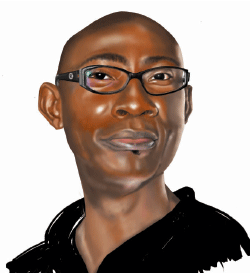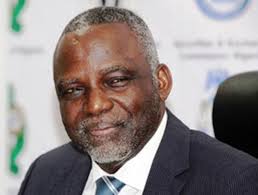When the 16th President of the United States, Abraham Lincoln, was assassinated on April 15, 1865, Americans and indeed all lovers of democracy could not but appreciate better what his famous quotation on democracy means.
It is to the credit of Lincoln that the slaves were emancipated through his famous Emancipation Proclamation on January 1, 1863 just as he played a key role in preserving the Union during the Civil War.
Today, it is doubtful if a better definition of democracy propounded by Lincoln “as the government of the people, by the people and for the people” has been found.
Those who regard Lincoln as one of America’s greatest heroes due to both his incredible impact on the nation and his unique appeal cannot be faulted.
His humane personality and historical role as protector of the Union and emancipator of slaves is a legacy that endures.
It is left to be seen today if those who see themselves as apostles of democracy have actually reflected on the personae of Lincoln and his ideals. For example, his eloquence on democracy and insistence that the Union was worth saving embody the ideals of self-government that all nations strive to achieve.
Perhaps, his remarkable story of rising from humble beginnings to the highest office in the U.S. is something most advocates of today’s democracy lack.
The above synopsis is necessary for us to appreciate the feeling of nostalgia by former U.S. President, Jimmy Carter, who recently postulated that democracy is dead while fielding questions from Oprah Winfrey. The follow up to Carter’s thinking is: who says democracy is not dead?
Why would Carter make such a statement? Those who ought to work towards ensuring that the beauty of democratic practice is sustained have tended to make the system appear like one social club where the interest of a select few is catered for.
Democracy the world over has been reduced to a game of a billionaires’ club where money and its language determine who emerges in any electoral contest.
Unfortunately, no society, developed and developing, is immune to this new trend of politics of cash and carry.
“The United States is an oligarchy now, not a democracy, where the wealthy holds sway over the government,” Carter told Winfrey.
A report in Daily Mail quoted him as saying: “There’s no way now for you to get a Democratic or Republican nomination without being able to raise $200 million or $300 million or more. I would not be inclined to do that, and I would not be capable of doing it.
“We’ve become now an oligarchy instead of a democracy, and I think that’s been the worst damage to the basic moral and ethical standards to the American political system that I’ve ever seen in my life.”
As I ruminated over Carter’s observation, who was elected 39th U.S. President in 1976, I told myself what monumental damage those who call themselves our leaders across the length and breath of the globe have caused the society.
If $200 million or $300 million is amazing to Carter to run for president today, it means there has been consistent decay in the U.S. political space since he left office 34 years ago.
The import of Carter’s observation is that those who win elective offices today do so, not on the basis of Lincoln’s definition of democracy but on account of their personal interest which in most cases is the interest of the select few who boast huge financial wherewithal and what their money can do for them.
In Nigeria, the situation is worse. Money politics has long replaced whatever rule there is for the system.
Politicians go the whole hog to raise money for electoral contest – primary and main contest – not because they want to sincerely render service to the public, but because they see politics as business with all the paraphernalia of profit and loss.
Take the last general election for instance. Those who ran for the least electoral office (House of Assembly) spent as much as N10 million.
Writing on Issues in Campaign Expenditure: Tracking Political Advertorials for 2015 Presidential Electioneering Campaigns in Nigeria from the Print Media, Tunde Salman said: “In the absence of full disclosure and lack of transparency in party funding, political advertising and publicity in the print media remain almost the only means of independently estimating the amount of money spent on any significant component of campaign expenditure in the country.
“The methodology involves developing a tracking template for monitoring political advertorials from all print media landscape and collecting advert rates of all the sampled prints while factoring a maximal discount threshold of 20 per cent to arrive at the final estimate of overall print media political advertising and publicity component of spending.
“The template also captures hidden advertisements and third party spending from more than twenty (20) national dailies tracked from 14 November 2014 to 28 March 2015.
“The result shows that N3,835,898,475 was spent on only one component of election campaigns output.
“When disaggregated, the APC presidential candidate and his support groups spent N724,540,609 while the PDP presidential candidate and his support groups spent N3,111,357,876.
“The study also reveals that third party spending, particularly for the PDP candidate, contributed significantly to this expenditure subhead.
“The implication is not farfetched, that increasingly candidates are designing smarter ways of evading campaign finance rules and regulations through third party spending.
“Therefore, there is need to trace the sources of money being spent by these third parties.”
Ours has become a society where nincompoops, touts, school dropouts and those who are mentally debased and completely ignorant of the definition of democracy but with deep pockets masquerade as our leaders and get elected.
We have produced and entrenched a gang of political leaders who, rather than point the way forward, are pointing the way backward.
A society whose leaders go into politics to make money and to enhance their social lifestyle rather than render service must examine itself properly.
Such society harbours people Lincoln refers to as “those who deny freedom to others, deserve it not for themselves.”
The desire to run for political offices should be based on conviction and competence, and political parties should adjudge them not based on how much money they and their supporters (or investors) bring out for election purposes.
Every government should be for the people.
A government for the people will do what it can to protect the people from harm. A government for the people will do things that are beneficial to them rather than things that are good for those in power or those who can afford to be in power.
It is either we are prepared to practice democracy the way it is or oligarchy the way Carter has seen it in the U.S.
It makes no sense that money politics should be the basis upon which leaders emerge in society, developed or developing.















